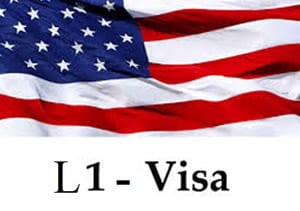
An L-1 visa is a great visa for an employee or owner of a company abroad who wants to transfer to a U.S. office or open a new office in the United States. L-1A visas are granted to managers or executives while L-1B visas are granted to specialized knowledge employees. A new office L-1 can be granted for 1 year initially while a regular L-1 may be granted for up to 3 years initially. L-1A visas can be renewed in increments of two years for up to 7 years total while L-1B visas can be renewed in increments of two years for up to 5 years.
What are the requirements to renew an L-1 visa?
To renew an L-1 visa the U.S. employer must file a new I-129 with U.S. Citizenship & Immigration Services (USCIS) prior to the expiration of the original petition. A renewal petition will usually include evidence showing the L-1 requirements are still being met, such as the following:
- Corporate documents showing that there is still a qualifying relationship between the U.S. employer and the company abroad;
- Documents demonstrating that both companies are still doing business;
- Evidence that the employee has worked and will continue to work in an executive, managerial or specialized knowledge role;
- W-2s & recent paystubs from the employee to show they have been maintaining their status and are eligible for an extension of status.
If the applicant opened a new office in the U.S. on an L-1A visa, the renewal petition must also demonstrate that the business has hired sufficient employees to support the managerial or executive role to ensure that the L-1A employee is primarily focused on executive or managerial tasks. Additionally, a new office renewal must include evidence of the financial status of the U.S. employer. Since a new office L-1 is only granted for 1 year, this means that the U.S. employer must have a strong hiring plan in place to ensure that the L-1A visa can be renewed.
How long will it take to extend an L-1?
If the employer pays for premium processing (currently an additional expense of $2,500), USCIS will issue a decision on the petition within 15 calendar days. This decision may be an approval, denial, Request for Evidence (RFE) or Notice of Intent to Deny (NOID). If you receive an RFE or a NOID, you will have the opportunity to submit a response and then USCIS will usually issue a decision within 15 calendar days of receiving the response. It is possible for USCIS to issue a second RFE, but this is uncommon.
If the employer does not pay for premium processing it can take several months to get a response, depending on the current processing times at the USCIS Service Center. If the extension is with the same employer and the applicant is performing the same job, the employee will be eligible to keep working past the end date of their current I-94 for an additional 240 days while they wait for USCIS to make a decision on the petition.
Once the petition is approved, the applicant can take that approval and go to a U.S. consulate abroad to obtain an L-1 visa, which will allow them to travel internationally.